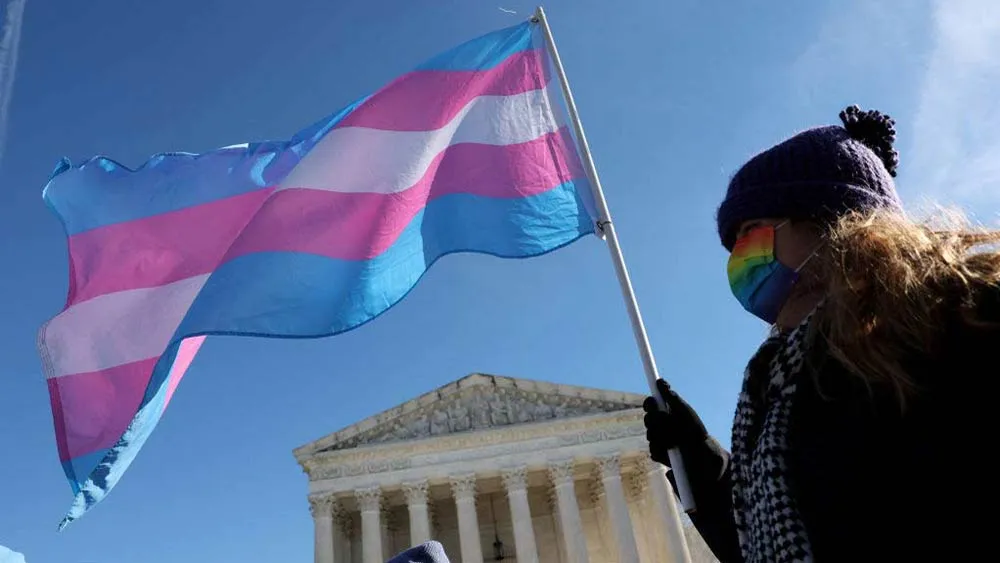December 13, 2011
How Romney's Flip-Flops on Gay Issues Come Haunt Him
Peter Cassels READ TIME: 6 MIN.
The famously flip-flopping Republican presidential candidate Mitt Romney is at it again. He now says he supports gay rights, but remains opposed to same-sex marriage. How can that be? Gays and lesbians consider the ability to marry an essential right.
In his quest for the presidency, Romney apparently wants to be all things to all voters. His flip-flopping is a major reason why so many of them dislike and distrust the candidate, observers say.
Critics on both the left and the right say he panders to the audience he is targeting at any given time.
When the influential and highly conservative Manchester Union Leader, the largest daily in New Hampshire, recently endorsed Newt Gingrich, its front-page editorial included a thinly veiled slap at Romney: "We would rather back someone with whom we may sometimes disagree than one who tells us what he thinks we want to hear."
The endorsement was considered a blow to Romney in his bid to win the Jan. 12 New Hampshire primary. He's is seen as a favorite son because he owns a summer home in the Granite State and is leading in opinion polls there.
The candidate appears to do more back flips on gay rights issues than Greg Louganis did off the diving board. During his 1994 race against U.S. Sen. Ted Kennedy, the liberal lion from Massachusetts, Romney said he was better on gay rights than his opponent was.
Since he first ran for president in the 2008 election, he has distanced himself from his earlier positions to appease social conservatives. That is until Nov. 21, when he told the Nashua (N.H.) Telegraph editorial board that he supports gay rights.
"The story on same-sex marriage is that I have the same position on that I had when I ran from the very beginning," said Romney. "I'm in favor of traditional marriage. I oppose same-sex marriage. At the same time, I don't believe in discriminating in employment or opportunity for gay individuals. So I favor gay rights. I do not favor same-sex marriage. That has been my position all along."
For 'Gay Rights.' But Not Marriage
It's the first time that a major Republican presidential candidate has supported gay rights. Even so, he has activists scratching their collective heads over how Romney could support equal rights for gays and lesbians, but not marriage, especially since he advocated for Massachusetts town clerks to validate them when the state became the first to legitimize gay marriage.
Marriage Equality USA has asked how he could favor employment rights while supporting the Defense of Marriage Act. "Romney's new stance raises profound questions for members of the armed forces who are legally married to same-sex spouses," said project leader Ned Flaherty in a news release.
If the candidate applies his fair employment policy to the military, he would also have to support an end to the denial of benefits to service members with same-sex spouses that DOMA requires, according to Flaherty.
Those benefits represent as much as 40 percent of compensation military personnel receive. Service members with same-sex spouses currently are not eligible for 368 active, reserve and veteran benefits that cover housing, health care, commissary discounts, separation pay, relocation, spouse employment aid, survivor benefits, legal services and burial rights.
EDGE asked the Romney campaign how the candidate could support both fair employment for gays and DOMA, and whether he would support the Employment Non-Discrimination Act, which has languished in Congress for more than a decade. The campaign, however, did not respond to our requests.
Marriage Equality USA has produced a continually updated Election 2012 table showing Romney favoring only fair employment on a list of 12 gay rights issues.
Five candidates, including President Barack Obama, rank higher overall.
The only one with a perfect score is Fred Karger, a longtime Republican operative from California and the first openly gay presidential candidate in history. Karger has been mostly under the radar because he has been barred from participating in the slew of Republican presidential debates because his poll numbers allegedly aren't high enough.
He's best known among LGBTs for exposing the financial backing of by the Mormon Church (in which, incidentally, Romney is an elder) of anti-gay marriage ballot measures across the nation, particularly Proposition 8 in California. The Mormons have funneled millions of dollars to ballot campaigns supported by the National Organization for Marriage.
NOM has asked presidential candidates to sign its "Marriage Pledge." The document requires signers to oppose same-sex marriage and support a federal amendment defining marriage as limited to one man and one woman. The pledge also requires candidates to support the appointment of judges and an attorney general who will "respect the original meaning of the Constitution" and defend DOMA.
Thus far, Romney and three other candidates -- Rick Santorum, Rick Perry and Michele Bachmann -- have signed. "I will never forgive him for signing the NOM pledge," Karger said about Romney in an interview with EDGE. "That he would do so is disgusting."
"The most offensive part of the pledge," he continued, "is a clause that requires the president to appoint a commission to investigate people like me who like to point out the shortcomings of anti-gay marriage forces."
Karger is on Republican primary ballots in Michigan and New Hampshire, where he is now running a campaign commercial. He's planning to be on the ballots in several other primaries, including those in Washington, D.C., Utah, Colorado and Nevada.
Candidate Insists He's Been Consistent
Romney maintains that he has always been consistent in his positions on gay rights. One of his campaign sites, "Why Romney", offers detailed explanations on a host of issues, from same-sex marriage to adoption, that border on obfuscation.
On the charge that he said in 1994 that he'd be better on gay rights than Ted Kennedy was, Romney contends that gay rights had a different meaning then than it does today. That will surprise many activists.
What the candidate actually said, according to the website, was that Kennedy would be less effective because he was viewed as too extreme: "When Ted Kennedy speaks on gay rights, he's seen as an extremist. When Mitt Romney speaks on gay rights, he's seen as a centrist and a moderate."
The site goes on to mention that critics cited a letter Romney wrote to the Massachusetts Log Cabin Republicans claiming that he said he would not only match but surpass Kennedy's record on gay rights, implying that Romney took the same positions as Kennedy and would take them even further.
Romney maintains that those critics falsely paraphrased him. He contends he made his statement in reference to Kennedy's "considerable record in the area of civil rights," not gay rights exclusively. Only then did Romney go on to argue that part of achieving civil rights goals is to "make equality for gays and lesbians a mainstream concern, stating that he could do what Kennedy cannot do, because the gay community needs more support from the Republican Party." Romney said he could "be a voice in the Republican Party to foster anti-discrimination efforts," which Kennedy obviously could not.
GOP Ambivalence at Romney
Although many predict he'll emerge as the eventual victor in the GOP nominating process to oppose President Obama next year, Romney has not been able to muster more than about 25 percent support in national opinion polls. There are plenty of Republicans who simply don't care for him.
Time magazine's Dec. 12 issue features Romney on the cover with the headline "Why don't they like me?" Romney's Mormonism is one reason. Some evangelical Christians have said the religion is a cult. And, considering the church's history of opposing gay civil rights, many wonder how he could possibly equate religious beliefs with support of employment rights.
Another factor driving the "anybody but Mitt" phenomenon among Republicans is that he committed the sin of being governor of Massachusetts, one of the most liberal states in the nation.
"Obamacare," the federal healthcare reform legislation that conservatives detest is similar to "Romneycare," the Massachusetts system created when he was governor. That likely will be the candidate's biggest weak spot among primary voters.
In the general election, his flip-flopping on issues such as gay rights may well come back to haunt him.
Peter Cassels is a recipient of the National Lesbian and Gay Journalists Association's Excellence in Journalism award. His e-mail address is [email protected].



